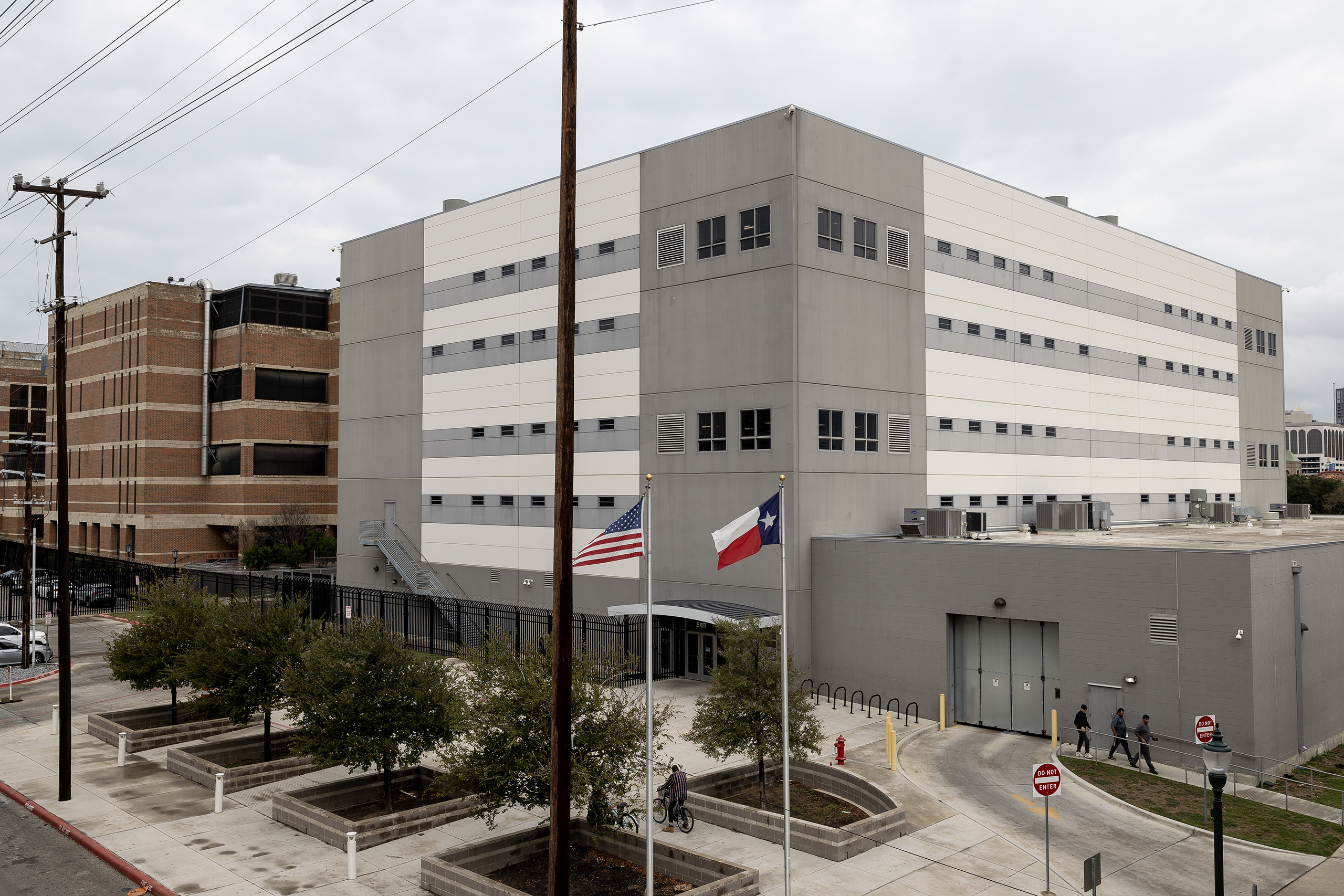Bexar County has transitioned the responsibility for jail intake mental health and substance use screenings from the Center for Health Care Services (CHCS) to University Health. This significant change comes after a six-year contract with CHCS and marks the first time since the Justice Intake and Assessment Annex (JIAA) opened in late 2018 that medical and behavioral health assessments will be consolidated under a single provider.
Previously, CHCS conducted mental health screenings while University Health managed medical intake inside the facility. Once detainees were transferred into the jail, University Health took over both medical and behavioral health treatment. In October 2023, Bexar County’s Office of Criminal Justice commissioned a study by the University of Texas Health Science Center at Houston to assess the efficiency of detainee processing and the diversion of individuals with behavioral health or substance use needs into treatment programs.
The study, led by Dr. Alexander Testa, revealed issues such as fragmented communication, inconsistent data sharing, and overlapping responsibilities among various agencies operating within the annex. His team recommended consolidating screenings and treatment under one provider or integrating behavioral health assessments into the existing medical intake conducted by University Health.
After reviewing these recommendations, Bexar County’s Department of Public Health began exploring ways to enhance its diversion efforts. “We were considering what that meant for the providers involved,” said Bexar County Public Health Director, Dr. Andrea Guerrero. “University Health can provide both the medical and behavioral health services, which made it logical to consolidate under their expertise.”
Bexar County Public Health submitted its recommendation to change providers in August, which was subsequently approved for the 2026 fiscal year budget on September 9. University Health President and CEO Edward Banos described this transition as part of a broader initiative to improve continuity of care.
“I see this as an opportunity for better continuity of care,” Banos explained. “We will conduct assessments on intake, and if psychiatric services are needed, they will be provided by us in the jail or referred to another appropriate facility. All information will be consolidated into one medical record.”
Discussions regarding the potential transition began months before the contract change, with officials from Bexar County reaching out to University Health to determine if they could assume intake services if the agreement with CHCS was not renewed. The decision came as a surprise to CHCS, which had operated the annex’s mental health screenings for years.
CHCS President and CEO Jelynne LeBlanc Jamison stated that they were not informed about the potential provider change until shortly before it was announced. “We were aware of Dr. Testa’s evaluation and engaged with Bexar County to understand the findings, but we were notified just a day before the contract change was proposed,” Jamison said.
CHCS concluded its role in the annex on September 30, 2023, with most staff members reassigned to other programs. University Health began conducting screenings on October 1, 2023. Banos noted that there was no transitional period, and Bexar Public Health played a crucial role in staffing the annex while University Health trained 11 new hires.
“CHCS left without assisting in the transition, but Dr. Guerrero and her staff were dedicated to ensuring we had the necessary staff in place,” Banos remarked. University Health is expected to fully take over staffing by November 10, 2023. Guerrero indicated that the decision to consolidate was discussed with both agencies prior to budget approval.
“We informed CHCS before our first court presentation in August,” she stated, adding that CHCS remains an essential partner in the county’s behavioral health network. “We still value CHCS; they play a crucial role in providing care to the community,” Guerrero emphasized.
While CHCS will continue to operate other mental health programs, including a jail-based competency restoration initiative, Jamison expressed concerns about whether changing providers would address the structural issues highlighted in the UTHealth study.
“I think they’re viewing our absence as streamlining, but we will have to wait and see if that actually materializes,” Jamison said. “If they do not address technology, staffing, and leadership coordination, the change may not bring about the necessary improvements.”
As the community navigates this significant shift in mental health service provision, both University Health and CHCS remain committed to improving outcomes for detainees and ensuring that vital services are accessible and effective.







